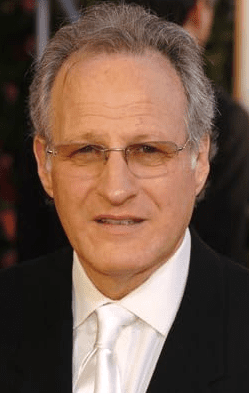Michael Mann, a name that resonates with cinematic excellence and storytelling prowess. As we delve into the captivating world of this visionary director, we find ourselves navigating through a tapestry of emotions, action, and profound narratives.
Table of Contents
In this blog post, we embark on a journey through the lens of Michael Mann’s most iconic creations, unraveling the intricate layers that define his directorial genius. From the pulsating energy of “Heat” to the gritty realism of “Collateral,” each film serves as a testament to Mann’s unparalleled ability to merge gripping plotlines with compelling character development. As we explore the advantages embedded within each cinematic gem, we witness the masterful strokes that have solidified Mann’s place in the annals of filmmaking history.
Beyond the silver screen, we peel back the layers of the enigmatic persona behind the camera, uncovering the life experiences and creative inspirations that have shaped Mann’s distinctive artistic vision. As we reflect on the artistic and philosophical nuances woven into his works, we confront the critical discourse surrounding Mann’s storytelling choices, shedding light on both accolades and controversies that have marked his career. Join us on this immersive exploration of Michael Mann’s directorial legacy, where each frame unfolds a new chapter in the captivating narrative of a cinematic maestro.
Reviewing Michael Mann’s Best Movies: Unveiling the Directorial Brilliance
Michael Mann’s filmography is a treasure trove of cinematic brilliance, and in this section, we will review some of his best movies. Mann has consistently pushed the boundaries of storytelling and visual aesthetics, leaving an indelible mark on the industry. Let’s dive into the mesmerizing worlds he has created and uncover the directorial brilliance that sets him apart.
One of Mann’s most iconic films is “Heat,” a crime thriller that showcases his mastery in building tension and character development. The film revolves around a group of professional bank robbers led by Neil McCauley (portrayed by Robert De Niro) and the relentless detective Vincent Hanna (played by Al Pacino) who is determined to bring them down. Mann expertly weaves together multiple storylines, creating a symphony of emotions that keeps viewers on the edge of their seats.
The advantage of “Heat” lies in its meticulous attention to detail and its ability to humanize both sides of the law. The characters are complex and multi-dimensional, with their own motivations and flaws. Mann delves deep into their psyches, allowing us to empathize with their struggles and choices. The film also features one of the most intense on-screen confrontations between De Niro and Pacino, further elevating its status as a masterpiece.
Another remarkable film in Mann’s repertoire is “Collateral,” a neo-noir thriller set against the backdrop of Los Angeles at night. Starring Tom Cruise as Vincent, a hitman with a mission, and Jamie Foxx as Max, an unsuspecting taxi driver caught up in Vincent’s deadly game, “Collateral” showcases Mann’s ability to create gritty realism within an urban landscape.
The advantage of “Collateral” lies in its dynamic performances and atmospheric cinematography. Mann captures the pulsating energy of the city, immersing viewers in a world of danger and suspense. The film explores themes of morality, fate, and the unexpected connections we make in life. Cruise delivers a chilling performance as Vincent, while Foxx shines as Max, a character who undergoes a transformative journey throughout the night.

Advantages of “Heat”: A Masterclass in Building Tension and Character Development
In dissecting the filmography of Michael Mann, one cannot overlook the sheer brilliance and impact of his masterful use of “heat.” Mann’s meticulous attention to detail in capturing the intensity and pressure within his characters elevates his works to a whole new level of cinematic mastery. Through the strategic buildup of tension, viewers are drawn into the intricate web of emotions and conflicts, making for a riveting viewing experience.
Moreover, Mann’s focus on character development shines through his portrayal of complex and multifaceted protagonists, adding depth and authenticity to his narratives. By masterfully intertwining the element of “heat” with character arcs, Mann creates a symphony of emotions that resonates with audiences long after the credits roll. This unique approach not only sets Mann apart as a visionary director but also solidifies his position as a true auteur in the realm of filmmaking.
Advantages of “Collateral”: The Gritty Realism and Dynamic Performances
Collateral” stands out for its gritty realism and exceptional performances, showcasing Michael Mann’s directorial brilliance. The film delves deep into the dark underbelly of Los Angeles, capturing the city’s essence with a raw and unfiltered lens. Mann’s meticulous attention to detail immerses viewers in a world where every scene feels authentic and intense.
The dynamic performances in “Collateral,” particularly by Tom Cruise and Jamie Foxx, elevate the film to a whole new level. Their on-screen chemistry and nuanced portrayals add layers of complexity to the characters, making the narrative even more compelling. Mann’s masterful direction transforms the movie into a riveting cinematic experience, solidifying his reputation as a visionary filmmaker in the industry.
Advantages of “The Insider”: Delving into Complex Moral Dilemmas and Authenticity
In “The Insider,” Mann takes on a different genre, exploring real-life events surrounding tobacco industry whistleblower Jeffrey Wigand (played by Russell Crowe) and his relationship with journalist Lowell Bergman (portrayed by Al Pacino). This gripping drama delves into complex moral dilemmas and questions of authenticity in the pursuit of truth.
The advantage of “The Insider” lies in its ability to tackle weighty subject matter with nuance and sensitivity. Mann creates an atmosphere of tension as Wigand’s life unravels after he decides to expose corporate malpractice. Crowe delivers a powerful performance, capturing the internal struggle faced by his character. Pacino’s portrayal of Bergman adds depth to the narrative, showcasing the lengths journalists go to uncover hidden truths.
Mann’s attention to detail is evident throughout “The Insider,” from the meticulously crafted dialogue to the authentic portrayal of real-life events. The film raises important ethical questions about corporate power and journalistic integrity, leaving viewers with much to ponder long after the credits roll.

Michael Mann: A Life In Film – Tracing the Director’s Journey and Influences
To truly understand Michael Mann’s directorial brilliance, we must delve into his life journey and explore the influences that have shaped his unique artistic vision. Born on February 5, 1943, in Chicago, Mann’s early experiences in the city would go on to influence his storytelling style and thematic choices.
Mann’s fascination with crime and the criminal underworld can be traced back to his childhood, where he witnessed the impact of organized crime in Chicago. This fascination would later manifest in films such as “Heat” and “Public Enemies,” where he explores the complexities of criminal minds and the blurred lines between good and evil.
Another significant influence on Mann’s work is his background in literature. Before venturing into filmmaking, Mann studied English at the University of Wisconsin-Madison, where he developed a deep appreciation for storytelling. This foundation in literature is evident in his films, which often feature richly developed characters and intricate narratives.
Mann’s directorial style is also heavily influenced by visual aesthetics. He has a keen eye for capturing stunning visuals, whether it be the neon-lit streets of Los Angeles in “Collateral” or the expansive landscapes of rural America in “The Last of the Mohicans.” His attention to detail and meticulous approach to cinematography elevate his films to visual masterpieces.
Artistic and Philosophical Aspects of Mann’s Works: Exploring Themes and Techniques
Beyond their entertainment value, Michael Mann’s films are imbued with artistic and philosophical depth. In this section, we will explore some of the recurring themes and techniques that define his body of work.
One prominent theme in Mann’s films is the exploration of duality. Characters often find themselves torn between conflicting desires or forced to confront their own moral ambiguity. This internal struggle adds layers of complexity to their journeys, making them relatable and compelling.
Mann also explores themes of identity and authenticity. His characters are often searching for their true selves amidst chaotic circumstances or societal expectations. Whether it be Vincent Hanna’s relentless pursuit of justice in “Heat” or Max’s transformation in “Collateral,” Mann delves into the human psyche, unearthing profound truths about the nature of identity.
Technically, Mann is known for his meticulous attention to detail and his use of atmospheric lighting. He often employs a color palette that reflects the emotional tone of a scene, creating a visual language that enhances the narrative. Mann’s films are also characterized by their dynamic soundtracks, which heighten the tension and immerse viewers in the world he has created.
Criticisms of Michael Mann’s Works: Deconstructing Controversies and Debates
Like any artist, Michael Mann’s work has not been without its share of criticisms and controversies. In this section, we will deconstruct some of the debates surrounding his films and explore different perspectives on his directorial choices.
One common criticism leveled against Mann is his tendency to prioritize style over substance. Some argue that his films can be visually stunning but lack depth in terms of storytelling or character development. While it is true that Mann places great emphasis on aesthetics, it can be argued that his visual choices serve to enhance the narrative rather than overshadow it.
Another point of contention is Mann’s portrayal of female characters. Critics argue that women in his films are often relegated to secondary roles or objectified for visual appeal. While there may be instances where this criticism holds true, it is important to note that Mann has also created complex female characters who defy stereotypes, such as Hanna’s wife Justine (played by Diane Venora) in “Heat.”
Mann’s approach to pacing and narrative structure has also been a subject of debate. Some viewers find his films slow-paced or overly complex, while others appreciate the deliberate build-up and intricate plotting. It ultimately comes down to personal preference and the viewer’s willingness to engage with the nuances of Mann’s storytelling.

Summarizing Michael Mann’s Directorial Legacy: A Maestro in Modern Filmmaking
In conclusion, Michael Mann’s directorial brilliance shines through in each frame of his films. From “Heat” to “Collateral” and “The Insider,” he has consistently pushed boundaries, crafting narratives that captivate audiences while delving into complex themes.
Mann’s ability to build tension, develop multi-dimensional characters, and explore philosophical depths sets him apart as a true maestro of modern filmmaking. While criticisms may exist, they do not diminish the impact of his work or the legacy he has left behind.
As we continue to revisit his films and explore new projects, we can only anticipate the next chapter in Michael Mann’s directorial journey, eagerly awaiting the cinematic magic he will undoubtedly bring to the screen.
Answers to Common Questions About Michael Mann: Understanding the Directorial Vision
As a director with a distinctive vision, Michael Mann often prompts questions and curiosity among viewers. In this section, we will address some common questions about his directorial choices and shed light on his creative process.
1. Why does Mann often set his films in urban environments?
Mann is drawn to the energy and visual aesthetics of cities. He believes that urban landscapes provide a rich backdrop for exploring themes of alienation, ambition, and the human condition.
2. What is Mann’s collaboration process like with actors?
Mann values collaboration and encourages actors to bring their own interpretations to their characters. He believes in creating an environment where actors feel comfortable exploring different aspects of their roles.
3. How does Mann approach research for his films?
Mann is known for his meticulous research process. He immerses himself in the subject matter, conducting interviews, studying real-life events, and consulting experts to ensure authenticity in his storytelling.
What is your opinion of Michael Mann as a filmmaker?
Michael Mann, known for his distinctive visual style and gripping storytelling, is undoubtedly a filmmaker of immense talent and vision. His meticulous attention to detail and innovative approach to cinematography sets him apart as a true master of the craft. Mann’s ability to create intense atmospheres and complex characters has captivated audiences worldwide, making his films a cinematic experience like no other.
With iconic classics such as “Heat” and “Collateral,” Michael Mann has solidified his reputation as a directorial genius. His seamless blend of action and drama, combined with striking visuals, showcases his unparalleled skill in creating compelling narratives that leave a lasting impact on viewers. Mann’s films are not just movies; they are immersive journeys into the depths of human emotion and behavior, making him a filmmaker worth admiring and studying closely for aspiring directors.
Why is Michael Mann one of the best directors in Hollywood?
Michael Mann is undeniably one of the best directors in Hollywood, known for his distinctive style and unparalleled storytelling. His meticulous attention to detail and innovative approach to filmmaking set him apart from his peers. Mann’s ability to create intense atmospheres and gritty realism has made him a master of the crime genre.
In his best movies, such as “Heat” and “Collateral,” Mann showcases his talent for crafting complex characters and engaging narratives. His use of visual aesthetics and atmospheric soundtracks enhances the overall viewing experience, drawing audiences into his meticulously crafted worlds.
Mann’s directorial prowess shines through in his ability to capture raw emotions and human complexities on screen. His films are not just about action and suspense; they delve deep into the psyche of his characters, making them relatable and compelling.
Through his exceptional storytelling and visionary direction, Michael Mann has cemented his status as a cinematic genius, earning him a well-deserved place among the best directors in Hollywood.
What actor has starred in the most movies directed by Michael Mann?
The actor who has starred in the most movies directed by Michael Mann is Tom Cruise. Known for his collaboration with the acclaimed director, Cruise has delivered remarkable performances in multiple Mann-directed films. Their partnership has resulted in critically acclaimed movies such as “Collateral” and “The Last Samurai,” showcasing the depth of their creative synergy.
Tom Cruise’s exceptional acting skills combined with Michael Mann’s visionary direction have created cinematic masterpieces that captivate audiences worldwide. Their shared commitment to excellence in storytelling and character portrayal has solidified their place in the annals of filmmaking history, making their collaborations a must-watch for both movie enthusiasts and critics alike.
https://7artmovie.com/the-heat-1995-movie-review/
https://www.imdb.com/name/nm0000520/




